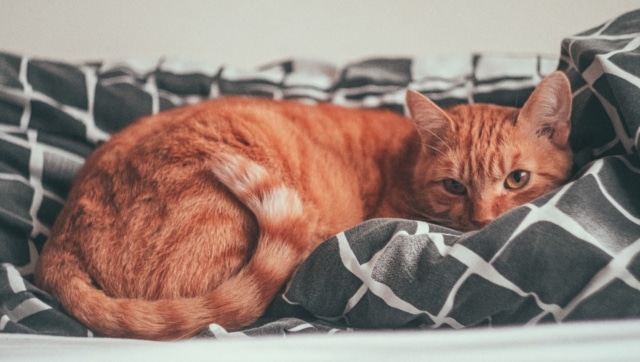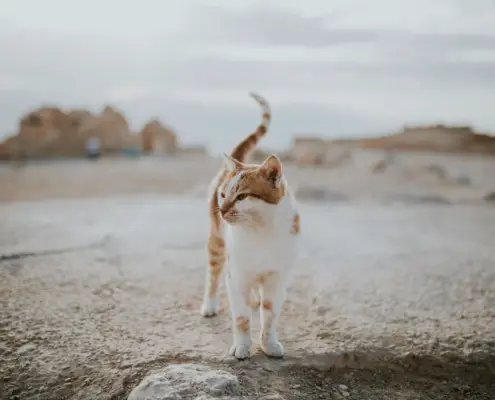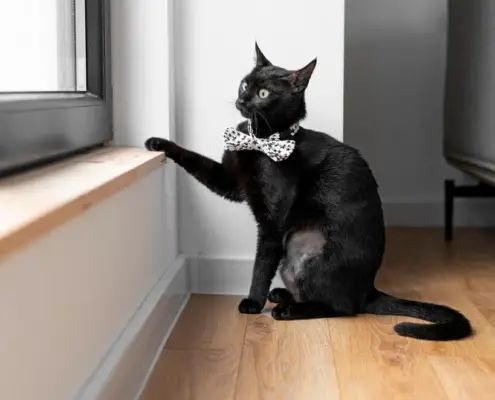
Anesthesia plays a crucial role in ensuring a stress-free and safe veterinary experience for cats. When undergoing medical procedures or surgeries, cats may experience fear, anxiety, and pain. Anesthesia helps alleviate these negative emotions and ensures that cats remain calm and comfortable throughout the procedure. It allows veterinarians to perform necessary treatments while minimizing stress and discomfort for our feline companions.
How anesthesia works for cats
Anesthesia works by inducing a state of temporary unconsciousness in cats, which eliminates pain and awareness during medical procedures. It involves the administration of specific drugs that can be delivered through inhalation or injection. These drugs act on the central nervous system, suppressing pain signals and inducing relaxation. The anesthesia process is carefully monitored by veterinary professionals to maintain the cat’s vital functions and ensure their well-being throughout the procedure.
Types of anesthesia used for cats
There are different types of anesthesia used for cats, depending on the nature of the procedure and the cat’s health condition. The most common types include general anesthesia, local anesthesia, and regional anesthesia. General anesthesia is used for major surgeries and involves complete unconsciousness. Local anesthesia is used to numb specific areas of the body, such as during minor procedures or dental work. Regional anesthesia blocks sensation in a larger area of the body, such as a limb. The choice of anesthesia depends on the specific needs of the cat and the veterinarian’s recommendation.
Preparing your cat for anesthesia
Proper preparation is essential to ensure the safety and effectiveness of anesthesia for cats. Before the procedure, the veterinarian will conduct a thorough examination of the cat’s overall health and may perform additional tests, such as bloodwork or X-rays, to assess any underlying conditions. It is important to follow any pre-anesthetic fasting instructions provided by the veterinary team to prevent complications during anesthesia. Additionally, discussing any concerns or questions with the veterinarian beforehand can help address specific needs or considerations for your cat.
The role of the veterinary team during anesthesia
The veterinary team plays a vital role in ensuring the success of anesthesia for cats. They are responsible for monitoring the cat’s vital signs, such as heart rate, blood pressure, and oxygen levels, throughout the procedure. Continuous monitoring allows them to promptly detect and address any changes or complications that may arise. The team also ensures that the anesthesia is administered at the appropriate dosage and adjusts it as needed to maintain the cat’s comfort and safety. Their expertise and experience are crucial in providing a smooth and stress-free anesthesia experience for your cat.
Risks and complications of anesthesia for cats
While anesthesia is generally safe for cats, there are risks and complications that can occur. Cats with underlying health conditions or older cats may be at a higher risk. Potential complications include respiratory problems, allergic reactions, and adverse reactions to anesthesia drugs. However, these risks can be minimized through proper pre-anesthetic assessment, careful monitoring during anesthesia, and the use of modern anesthetic techniques. Veterinarians take every precaution to ensure the safety of cats during anesthesia and will discuss any potential risks with cat owners before the procedure.
Ensuring a stress-free veterinary experience for your cat
Creating a stress-free veterinary experience for your cat begins even before the anesthesia procedure. Cats are sensitive to their environment and can easily become anxious or fearful. To help alleviate stress, it is important to familiarize your cat with their carrier and make it a comfortable and safe space for them. Additionally, using pheromone sprays or diffusers, such as Feliway, can help create a calming atmosphere. During the veterinary visit, speaking softly to your cat and keeping a calm demeanor can help reassure them. Finally, providing positive reinforcement and treats after the procedure can help create positive associations with the veterinary experience for your cat.
Aftercare and recovery from anesthesia
After anesthesia, your cat will require proper aftercare to ensure a smooth recovery. The veterinary team will provide instructions on medication, diet, and any activity restrictions. It is important to closely follow these instructions to promote healing and prevent complications. Providing a quiet and comfortable space for your cat to rest is essential during the recovery period. Monitoring your cat’s behavior, appetite, and incision site is important to identify any signs of discomfort or complications. If you have any concerns or notice any abnormal behavior, it is crucial to contact your veterinarian immediately.
Frequently asked questions about anesthesia for cats
- Is anesthesia safe for cats?
- While there are risks associated with anesthesia, it is generally safe for cats when administered by trained professionals and with proper monitoring.
- How long does anesthesia last in cats?
- The duration of anesthesia depends on the specific procedure and the drugs used. It can range from a few minutes to several hours.
- Can cats have adverse reactions to anesthesia?
- Cats can have adverse reactions to anesthesia, although it is relatively rare. Veterinarians take precautions to minimize the risk and monitor cats closely during the procedure.
- How can I help my cat recover from anesthesia?
- Following the veterinarian’s instructions regarding medication, diet, and rest is crucial for your cat’s recovery. Providing a calm and comfortable environment is also important.
Conclusion
Anesthesia is a critical component of ensuring a stress-free and safe veterinary experience for cats. It allows veterinarians to perform necessary procedures while minimizing pain, fear, and anxiety in cats. By understanding the importance of anesthesia, cat owners can play an active role in preparing their cats for anesthesia and ensuring a smooth recovery. With proper pre-anesthetic assessment, careful monitoring, and a stress-free environment, cats can receive the necessary medical care they need while minimizing discomfort and anxiety. Working closely with the veterinary team and following their guidance will help ensure the best possible outcome for our feline companions.
If you have any concerns or questions about anesthesia for your cat, consult with your veterinarian to address them and ensure the best possible care for your feline companion.
If you enjoyed my article, I would appreciate you sharing it with your network.

Sima Ndlebe
Sima writes for CatBuzz. He is interested in Cats, Health and Fitness, and Entrepreneurship.
Published: 12 October 2023
Related Articles
Disclaimer
The content found on CatBuzz.org is presented on an "as is" basis and is intended for general consumer information and education purposes only. Any utilization of this information is voluntary and solely at the user's own risk.
None of the articles or content should be regarded as, or used in place of, veterinary medical advice, diagnosis, or treatment. The information provided on the website is purely for educational and informational intentions and should not be considered a substitute for professional guidance from a veterinarian or other qualified expert. The articles are designed to inform consumers about veterinary healthcare and medical matters that may impact their cat's daily life. It should be noted that this website and its services do not constitute the practice of any form of veterinary medical advice, diagnosis, or treatment. CatBuzz.org explicitly disclaims any liability for any direct or indirect damages or losses that may arise from the use of or reliance on the information contained within the content.
Consumers must consult a veterinarian, veterinary specialist, or another qualified veterinary healthcare provider when seeking advice regarding their cat's health or medical conditions. It is important not to ignore, avoid, or postpone seeking medical advice from a veterinarian or other qualified veterinary healthcare provider solely based on information obtained from this website. If you believe that your cat may be experiencing a medical issue or condition, it is imperative to promptly contact a qualified veterinary healthcare professional.




